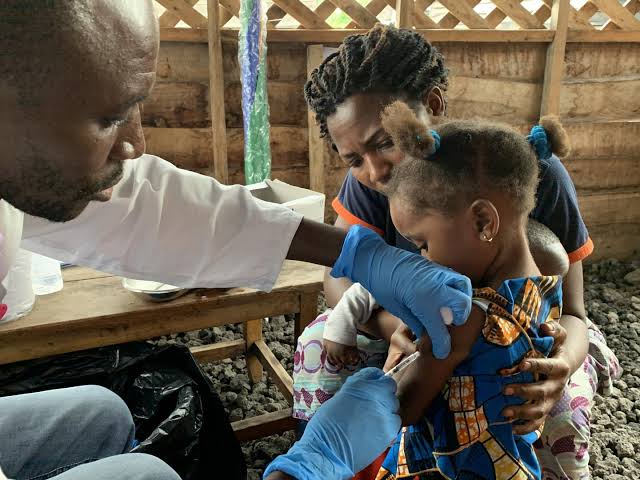The Covid-19 pandemic has had a significant impact on the world in many ways, including global healthcare. The United Nations’ children’s agency, UNICEF, released a new report on Wednesday that stated over 67 million children worldwide either partially or fully missed routine vaccinations between 2019 and 2021 due to the Covid-19 related lockdowns and healthcare disruptions. The report further expressed concerns that this could lead to potential outbreaks of polio and measles.
Of these 67 million children, 48 million missed out on routine vaccines entirely. This decline in vaccine coverage among children was experienced in 112 countries, and the percentage of children vaccinated worldwide slipped 5 points to 81 percent, a low not seen since 2008. The regions hardest hit by the decline in vaccination rates were Africa and South Asia.
“More than a decade of hard-earned gains in routine childhood immunization have been eroded,” the report said, adding that getting back on track “will be challenging.” The report further raised concerns about a drop in people’s confidence in vaccines, seen in 52 out of 55 countries surveyed. This is particularly alarming as vaccines save 4.4 million lives each year, and the United Nations figures could jump to 5.8 million by 2030 if its ambitious targets to leave “no one behind” are met.
“Vaccines have played a really important role in allowing more children to live healthy, long lives,” Brian Keeley, the report’s editor in chief, told AFP. “Any decline at all in vaccination rates is worrying.”
Before the introduction of a vaccine in 1963, measles killed approximately 2.6 million people each year, mostly children. By 2021, that number had fallen to 128,000. Between 2019 and 2021, the percentage of children vaccinated against measles fell from 86 percent to 81 percent, and the number of cases in 2022 doubled compared to 2021.
The report further raised concerns about how other crises, such as climate change and food insecurity, could compound the slide in vaccination rates. “You’ve got increasing numbers of conflicts, economic stagnation in a lot of countries, climate emergencies, and so on,” the report said. “This all sort of makes it harder and harder for health systems and countries to meet vaccination needs.”
UNICEF called on governments to “double-down on their commitment to increase financing for immunization” with special attention on accelerating “catch-up” vaccination efforts for those who missed their shots.
The report highlighted that “worryingly, the backsliding during the pandemic came at the end of a decade when, in broad terms, growth in childhood immunization had stagnated.” The report also warned of the risks of potential polio and measles outbreaks due to the missed vaccinations.
Furthermore, the report noted that there were drops in vaccination rates in both low- and high-income countries, indicating that the pandemic has affected healthcare systems globally. This underscores the importance of building resilient healthcare systems that can withstand pandemics and other crises in the future.
The decline in vaccine coverage is a concerning trend as vaccines are a vital tool in preventing the spread of diseases and saving lives. The UNICEF report’s findings suggest that the pandemic has put the lives of millions of children at risk.
UNICEF’s report highlights the urgent need for governments to prioritize and increase their funding for immunization. Nigeria is among the African countries hardest hit by the disruption of immunization services. The country has been grappling with vaccine hesitancy and misinformation, which has further complicated efforts to maintain routine immunization services. The government and its partners must restore vaccination services and rebuild confidence in vaccines, much more needs to be done to ensure that children are protected from preventable diseases.



